How much does it cost to create a custom CRM system? Got the answer! In this article, you will learn about:
- the types of CRM software;
- popular CRM software features;
- the time and the money required to build custom CRM solutions;
- CRM software in business;
- the time and the money required to build a custom CRM system that is right for your business.
A newly launched business owners usually don’t expect too many clients right away, and an Excel or Google Sheets may be enough to store, manage, and work with customer data.
As the business expands and more clients appear, companies can’t longer cope with such large amount of data and need a more sophisticated solution: a scalable, flexible software or, in other words, a CRM system.
In this article, we examine the features of popular CRM systems, figure out how to build your own CRM system from scratch and for what price.
Why a business might need a CRM system
Before we define how to build a CRM application, let's review what business tasks a CRM can help you solve:
1. Storing information about your clients.
Every standard or custom-made CRM software system usually allows collecting and storing information about clients. This may include personal data, contacts, contracts or company documentation, and so on. The exact features depend on the specific product.
Based on this information you can:
- Define your clients' preferences;
- Predict their requirements;
- Advance your sales strategy.
Besides, all the precious data is stored at one place, in a well-organized format, so everyone within your company can look it up and use it.
2. Automation and easy interactions between tasks.
If you collect and use customer data in different applications and services, you might need to build your own CRM system. Integrate CRM with live-chat, email marketing solutions, call tracking system, and other services to automate communication channels, simplify the task management process and synchronize all data stored at different places before.
3. Optimization and storage of the client data.
Having data stored at one place means no need to worry about the sales duplicating customer profiles, the support losing important client feedback, or marketers missing significant reports. The database can be accessed from any place and any device, it will serve you for years, storing the entire customer interactions history.
Different CRMs for different purposes
There are several types of CRM systems that solve different tasks:
1. Operational:
automate sales, marketing, and day-to-day business tasks.
2. Analytical:
automate customer acquisition funnels, manage the retention and return of customers.
3. Collaborative:
manage how your clients interact with your business through different channels.
To order a custom CRM software, you, first of all, need to define what features your business might need. Every company has different goals and needs, so, at this stage, we recommend focusing on your case and not repeating somebody’s else solution.
We divided the list of possible features into three groups by their importance: core, standard, and extra, so you can quickly determine which features you need on the MVP stage and which ones can be added later.
Core features
Create a CRM and implement these features to get straight to work.
- Leads management.
Manage and track leads, increase customer loyalty, and plan future interactions. Make sure that you can easily automate the lead processing and quickly assign them to the right managers. This way, your customers will receive a better quality service as quickly as possible.
- Task management.
Create and schedule tasks, meetings, send follow-up letters, schedule calls, and transactions, track deadlines, and much more. This feature allows your employees to assign tasks to their colleagues, set and receive notifications about all tasks or updates.
- Dashboards.
Get quick access to the details of your company’s activities, including real-time reports, information about closed transactions and potential leads. With dashboards, you can access information about sent emails and customer responses, and other data provided through funnels, charts, and forms.
- Basic reports.
Create reports on every aspect of your CRM functionality. You will be able to keep track of such indicators as open, closed and lost leads, lead conversion percentage, profit forecasts, and others. Using these reports, you can quickly analyze the current situation, compare it to the planned one, and draw conclusions.
Standard features
While core features give you the opportunity to get started right away, sooner or later your company will face new challenges. Business expansion always means a bigger need to go beyond the basic functionality and complement it with standard features.
- Sales pipeline.
According to a HubSpot study, companies that use sales funnels were able to increase their profits by 28% compared to those that did not.
The sales funnel is a visualization of the sales process, which, for clarity and clearer understanding, is divided into separate stages. It shows the status of any deal in a given period of time and lets you evaluate the work of any particular department in the company.
With the help of sales funnels, you will be able to estimate the possible profit, and, most importantly, understand at what stages you have the most leads disappearing, and which aspect of your business needs more attention.
- Invoicing.
With this feature, you can quickly create and send invoices and view their status, integrate CRM with your accounting system and get more control over your company finances.
- Custom reporting.
Regardless of the specifics of your business, you may need custom CRM software reports that will show information on the data important exclusively for your company. In this case, basic reporting will not be enough.
- Apps integration.
Why did Slack become so popular? One of the main reasons is that it offers numerous integrations with other products for faster and more efficient work. The same is true for CRM software: the more integration options you have, the better. Make sure that you can integrate your CRM with analytical software, Google Apps, a live chat such as Intercom, and other applications you use now or plan to apply on regular basis.
- Mobile access.
If you don’t have access to your computer, a mobile version of your CRM will come in handy. It’s also useful for meetings outside your office: you can log into the database and retrieve or add new data any time. You can implement this functionality in two ways:
- Create a mobile version of your CRM system.
Faster to develop and less expensive, but some of the features, such as reports, will be difficult to use on a mobile phone due to the smaller screen size. - Develop a mobile app.
This option is for those who value mobile-first. The application will interact with your main CRM system through an API, and you will get access to all features anywhere and any time.
Extra features
Sometimes, business requests go beyond the standard feature list, and that’s when you might require for building a CRM system with extended functionality.
- Lead scoring.
Evaluate leads by the quality and prioritize their processing. Your team will be able to see which leads are worth focusing on now, and which ones can wait. You can also customize the grading scale and your system for assessing the quality of leads.
- Internal systems integration.
Systems for marketing automation, such as MailChimp, HubSpot, Intercom, and similar products, can be integrated with your CRM system to ensure maximum productivity.
- Social networks integration.
Web presence is a must-have for modern businesses, and social networking is a channel that suits perfectly for communicating with customers.
Building a CRM system with social network integration will allow you to see user updates and immediately add them into your database, as well as keep communication history and create user profiles.
- Chatbots integration.
Chatbots integrated into CRM software let you quickly access tasks, reminders, follow-ups, and work with routine tasks faster and more efficiently. They can also have a dialogue with the leads using a pre-planned conversation scenario, and offer customers the necessary information and steps for further interaction with your product.
Prices of building a custom CRM system
Every solution has a different price based on business needs and additional requests.
The CRM software cost and time may depend on the following factors:
- The number of access types (roles) that you need.
For example, it could be Admin, Supervisor, Head Manager, Manager, Affiliate, and others. All these roles will have different access and options available.
- Lead creation scheme.
Information can either be entered manually or automatically based on the available information. For instance, an email can be gathered via the contact form on a website, and a phone number while ordering goods.
- Tasks setting and monitoring.
Tasks may have different rules, contain labels, and attributes; managers may have the ability to assign tasks, follow up on deadlines, receive reminders, and so on. These features require additional time for implementation.
- Lead status updates.
The sales funnel can be implemented graphically, and managers can simply change the leads status by moving them along the funnel. In a more complicated option, all client information and history of interaction with your company are saved.
- Customer interaction reports.
Make your own CRM system with custom reports. A lead scoring feature can be enriched with the customers’ interaction reports based on activity from social networks and other marketing channels.
- Integration with other services and systems.
The development cost of this feature will depend on the number and the complexity of features.
- Mobile CRM software access.
If you need a full-fledged mobile application, the development time may grow by an average of 50-60%.
Now, let's consider the approximate CRM software price of developing each individual feature and the time needed to implement it. This all will affect the total CRM cost.
How much does it cost to build a CRM system
| Task/features | Development time, hours | Approx. cost, $ |
| Pre-development period (architecture planning, DB creation, requirement clarification, etc.) | ~30-35 | ~1300-1600 |
Core features development
| ~200-370 | ~10000-19000 |
Standard features development
| ~200-300 | ~10000-15000 |
Extra features development
| ~150-200 | ~7000-10000 |
What’s the best way to develop a CRM System
Usually, business owners prefer to cut expenses whenever it's possible. One of the points to consider is the cost and the quality of the team to hire. Having a professional, well-established team is a great option but it might seem quite expensive. On the other hand, if you go for a cheaper alternative and hire freelancers, you should keep in mind that:
- You are hiring individual developers, not a team, which means that you will have to spend time on teambuilding, organizing the processes and setting up communication between the freelancers.
- Some freelancers, of course, may be very skillful but some are not. It’s a real gamble whether you are getting a completed task, if at all.
- A lot of them go MIA or spend so long doing a project that you are just wasting your time.
- None of them can actually guarantee that you will get a high-quality, working product, because each person will be responsible for a single part of the process.
Ideally, it's better to look for a team that knows the industry well, has a history of successful projects, positive feedback from previous clients, and can help you to develop a high-quality MVP with full responsibility for the result and the deadlines.
HOW TO CREATE YOUR OWN CRM SOFTWARE FROM SCRATCH?
Each dollar spent on custom CRM software development brings back about nine dollars profit. Although this sounds good, the truth is that it is possible only if the application is created in correspondence with commercial objectives. As we’ve already mentioned, hiring individual freelance developers doesn’t guarantee the software will work efficiently, nor the ready-made solutions that you can start using right away. The better solution you can choose in this scenario is to hire a reliable, professional team and build a CRM software from scratch.
However, it is costly and time-consuming, but it’s worth the money. Except for the perfect fit for your needs, custom CRM systems provide a seamless workflow and great scalability. So, if you are interested in improving your workflow and customer relationship, consider the following guide on how to build a CRM from scratch.
1. Pick the Type, Role, and Platform
In addition to the types of customer relationship management systems, there are also roles and platforms that you must choose in order to create a product that meets the requirements of your business. Since we’ve already covered CRM types, let’s take a look at its roles and platforms.
Roles in CRMs
As long as you add a user to CRM, you have to determine a specific role for the account, e.g. merchant or manager. Depending on the specified role, the account gets the empowerment to accomplish separate tasks. By way of illustration, the account with the assigned administrator role allows its user to monitor the activities, complete events, manage requests, and more.
When you develop a CRM software, be sure to prepare templates for common roles and provide the ability to easily create and configure various roles from scratch depending on the level of user access.
Platforms in CRMs
This is where the expert who is creating a CRM from scratch should pay attention to the hardware the company uses, be it PCs or portable computers running on Mac OS, Windows, or Linux. The client may also want to create a mobile app to reach more precise data, greater efficiency, higher traffic, and better service.
2. Define the Functions CRM Should Carry Out
As soon as you figured out what task you set for CRM, you can choose the main functions according to your business size.
- Individual businessmen usually create a CRM platform for managing and monitoring connections with the consumers’ database.
- Small businesses require instruments to automate sales inventory, leads, and performance, as well as monitoring the productivity of sales reps.
- Medium-size businesses need a tool that automates sales and marketing and improves analytics which enables creating effective marketing strategies.
- Large businesses use a fully-fledged CRM software combining all functions in one.
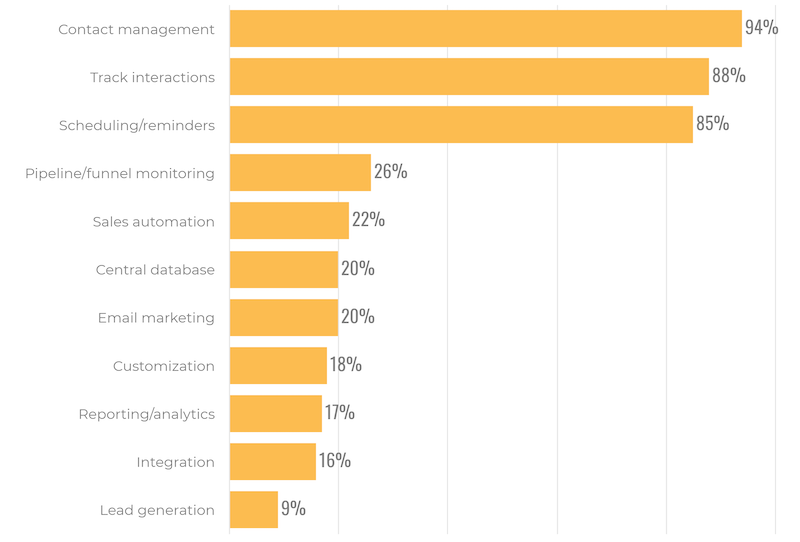
3. CALCULATE THE CUSTOM CRM COST
Building a CRM from scratch may vary depending on business purposes and requirements. As already mentioned in ‘Prices of building a custom CRM system’ section, there are many factors influencing the time and cost of building software. Additionally, you can find the approximate value and development hours of creating every single task or feature. Based on the size of a business you have and the functions you need to implement, you will be able to calculate the project cost.
4. Train the Team Members
Then you have to arrange the training for the developers and users of your team separately.
Make sure to start it long before the system is implemented, so the team will know how to use it in the right way. Consider a few ways to arrange the training:
- Choose a few team members who will get acquainted with a CRM platform in the late-stage creation process. This way, you will not take the whole team away from daily work. As soon as these few employees get an idea of CRM work principles, they will be able to share the manual covering each platform element with the rest of the team specialists.
- Reach an agreement with a web design agency about preparing textbooks and conducting employee training for an additional fee. This way your team will not be distracted from their duties at all. The additional CRM training provided by professionals is certainly worth the money.
5. Ensure Service Support and Keep Improving the Software
Despite the professionalism and extensive skills of the developers working on CRM software, there is a small possibility that minor errors and bugs will remain in the final project. While arranging the support service, you can easily eliminate potential issues. Here’s how you can organize it:
- Send a request to a developer to fix the error on the site for an additional fee.
- Look for professional technical support the developers can provide for a finished project during a specific period, e.g. a few days, weeks, or months.
- Agree with the developers on the specialist care within set services.
- Find solutions on the forums.
- Optimize your CRM system using internal customer support to collect feedback from users, etc.
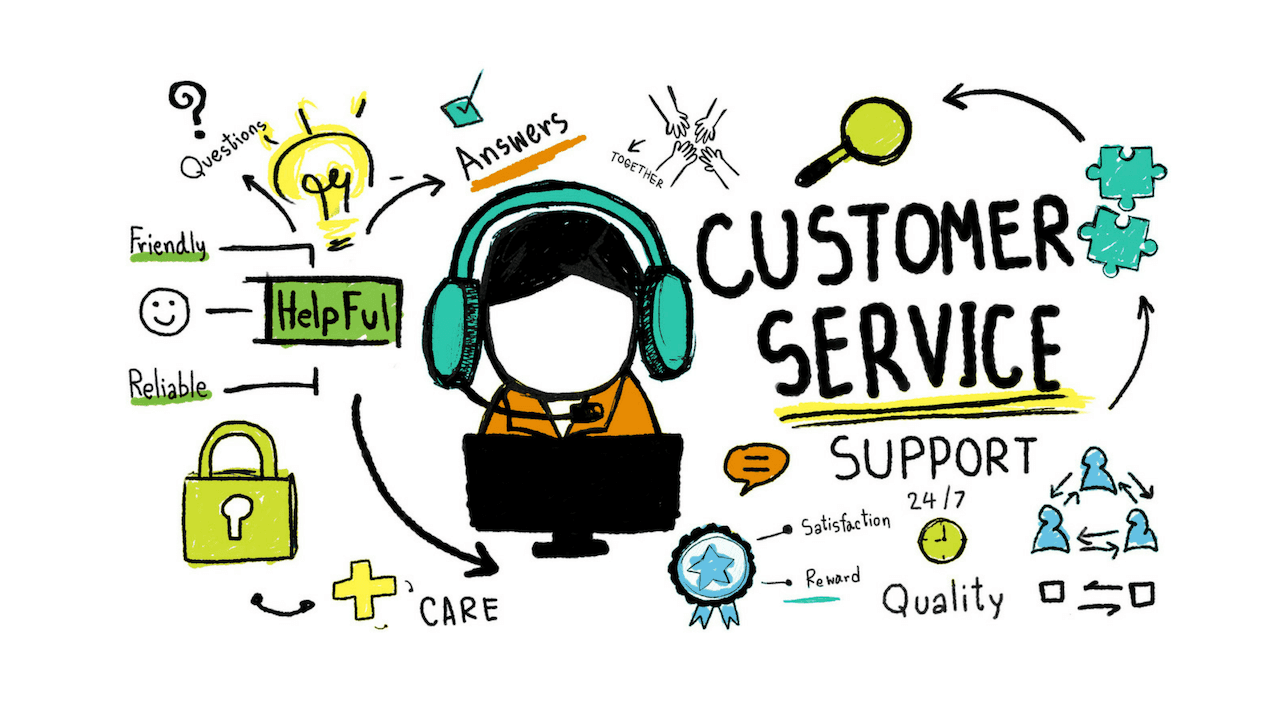
We hope this quick guide has helped you figure out how to create your own CRM system.
Recent CRM Projects at Gearheart
Here at Gearheart, we have vast experience in building your own CRM projects from scratch. A few of them include:
ShootQ — management CRM software for photographers. It lets the users create, send, and receive contracts, gives the clients an opportunity to book photo sessions online, track leads, and stay organized with the workflow tool.
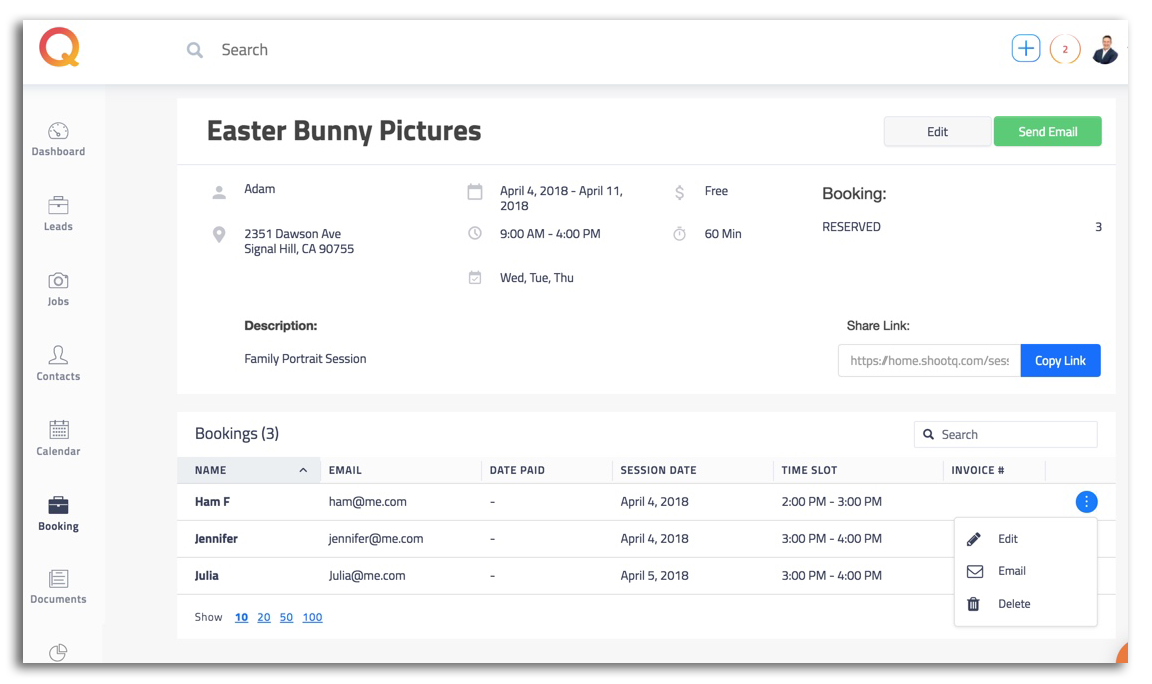
Transpose — a project management tool. It makes it easy to organize and store a huge amount of data, as well as building clients’ databases, adding records, analyzing business progress, and more.
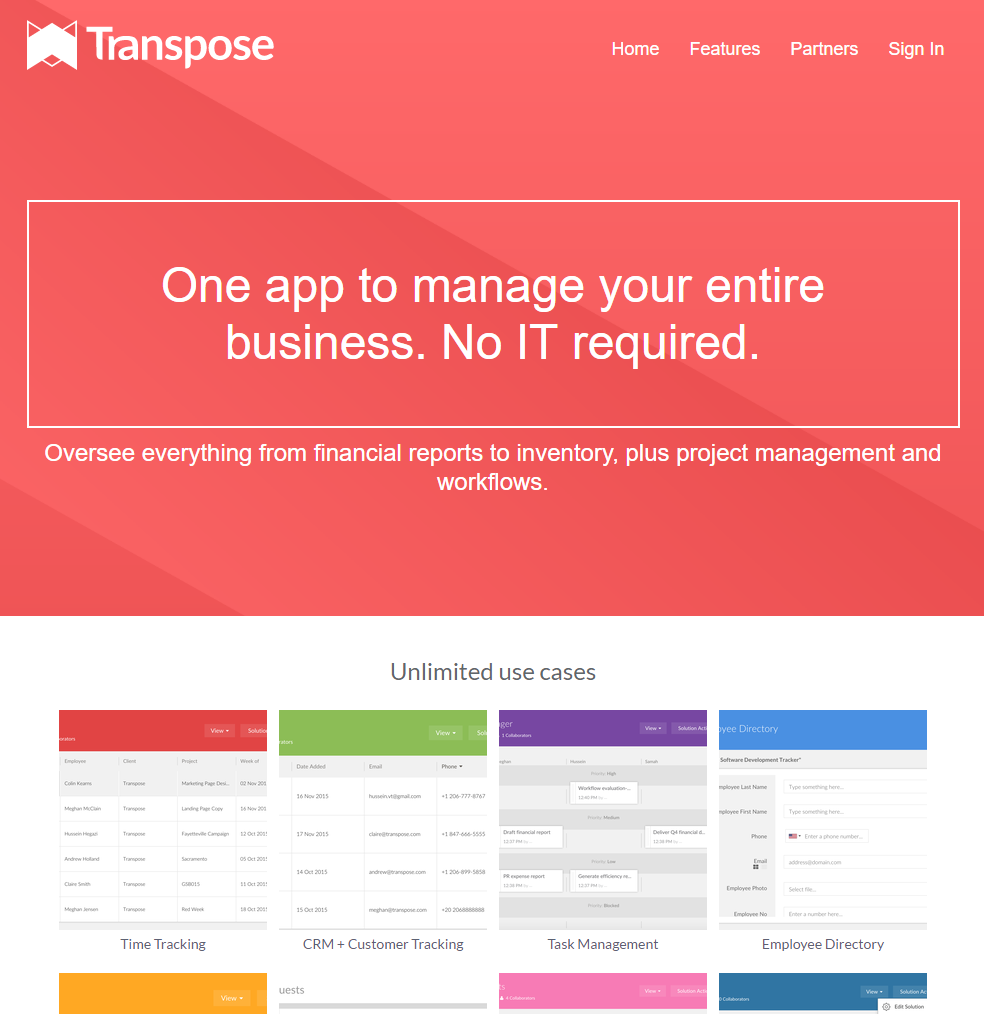
Timer — project management and time tracking system. This is the software Gearheart uses when working on the projects. It allows completing all management tasks including planning project sprints, tracking time, and progress, as well as generating salary reports and invoices, etc.
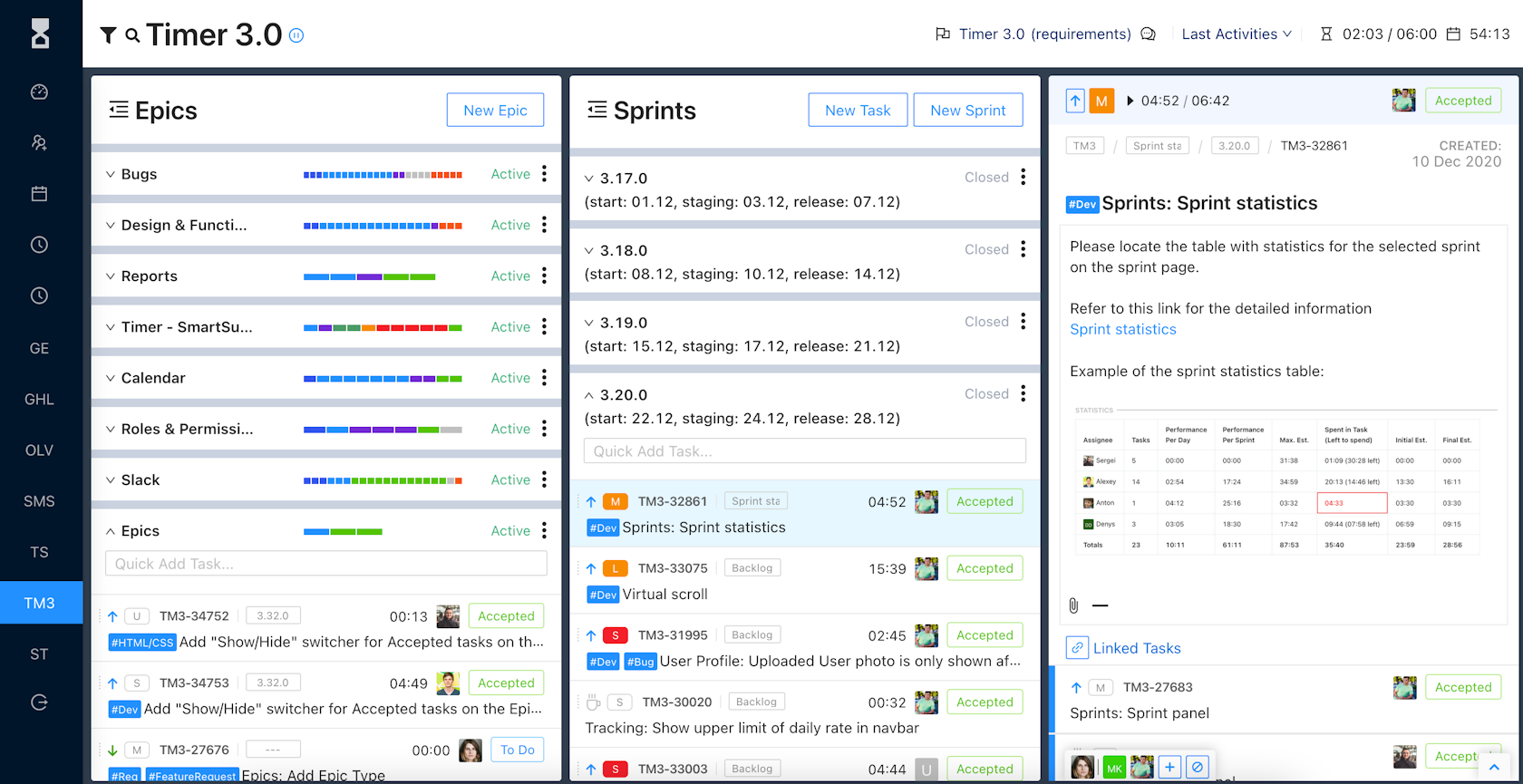
The process of a CRM software development at Gearheart.io
Once we start working on your project, a business analyst will get their head in the game and guide you through all development stages.
Sometimes, it may not be as easy for companies to instantly figure out how to develop a CRM software, prioritize features or define how your perfect system should operate. That’s why an outside perspective is so crucial.
Transparency is what we value the most, so we track the entire development process in Timer. This is our own software that we created to help our clients stay in touch with the web app development team, see how much has already been done and check on the tasks and deadlines. This information will help you plan any activities related to CRM system development and understand the overall process.
Leave your contact information, so we get in touch with you, answer your questions on how to build a custom CRM, evaluate the complexity of your project, and estimate how much it will cost.




